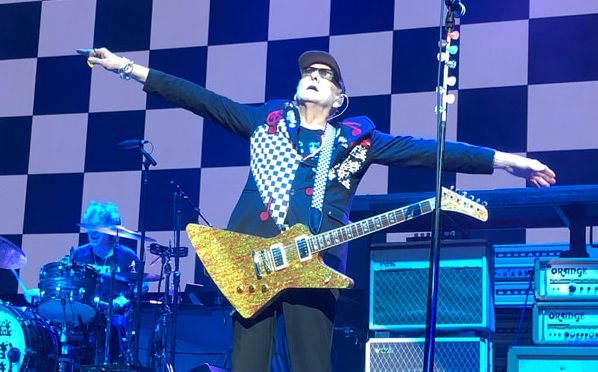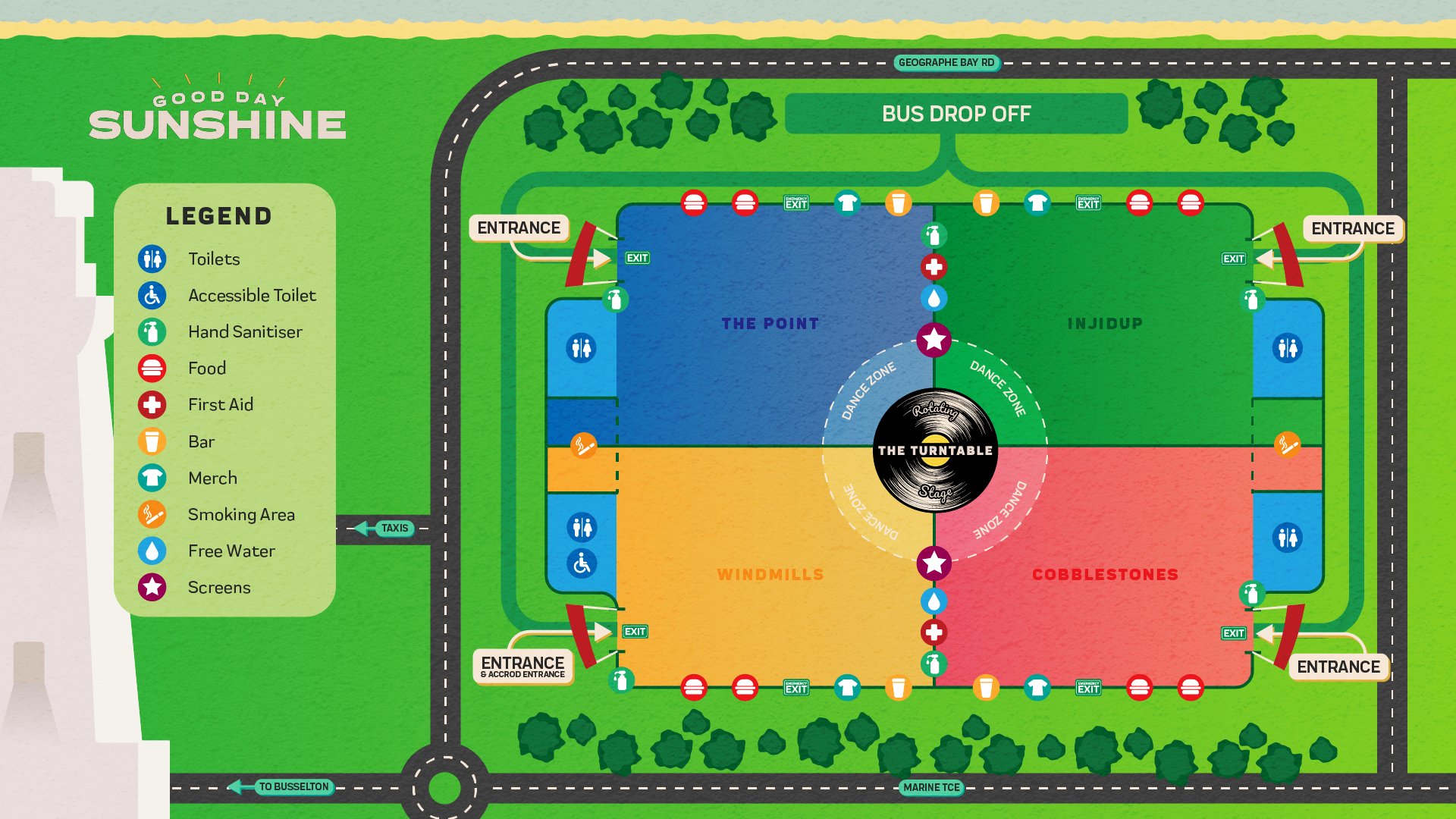How Australia is leading the way in COVID-safe solutions for live events

Promoters in the northern hemisphere are looking at Australian festivals and tours for COVID-safe solutions to kickstart their events.
One example is the Under The Southern Stars national tour, the first event since COVID-19 hit to feature major border-hopping international headliners. Rescheduled from last year, it has today announced its 2021 dates, playing between April 30 and May 16 to an estimated total of 60,000.
Today’s announce saw Bush and Stone Temple Pilots now joined by Cheap Trick, with +Live+ dropping out due to scheduling issues. Rose Tattoo and Electric Mary remain on the bill.
Overseas agents have told Aussie promoter One World Entertainment that its strategy to get UTSS 2021 green-lighted by the Commission of Border Control is a blueprint for future tours.
“From the artists’ point of view, there’s a military-style environment,” One World Entertainment managing director Andrew McManus explains to TMN.
“We move them as one, they all stay in the same hotel with blocked-off floors. There’s no backstage as such for the artists, they come in, they do the show and then we take them home.”
The three US bands will be tested and quarantined in Los Angeles before they all board the plane together. On arrival at Sydney Airport, they will be ushered out via a side door, and bussed to a safe bubble in a resort to quarantine for 14 days. Police will manage security.
During the tour, they’re in their own aircraft and will stay on blocked off hotel floors. There’s no backstage area; the acts are bussed into the venue for their sets and taken off right after, with no interaction with other musicians.
McManus points out, “Promoters have had to learn new tools and skills, quickly and on the run, and make sure, that we dot the I’s with so many departments. It’s a completely new world.”
For Under The Southern Stars, McManus had to work with health officials and police, and source 105 references and letters of support, including from the Premier of South Australia, the Lord Mayor of Brisbane, and the NSW environment minister, to get approval from the commissioner of border control.
His submission emphasised the economic benefits of the tour. Each of the 11 shows provided employment for between 500 to 600 people directly or indirectly.
“This in turn would give an economic growth for each market place of around $6 million,” McManus says.
This approach allowed the musicians to be pitched as “critical workers”.
Extra costs include a COVID marshal for every 200 in the crowd, twice as many toilet blocks, no urinals because they are free-standing, each toilet with a flipper to be cleaned every 15 minutes, and zig-zag queues for bars and toilets.
“The virus is going to be with us for a long time so the live sector has to work around it. But once the vaccines arrive there’ll be great confidence in the public to go to concerts.”
McManus is already booking a number of international tours for 2021 using the same process. One is Kiss in spring.

Pictured: Good Day Sunshine site
Perth-based promoter Ross Macpherson, whose Good Day Sunshine festival last October drew considerable interest for its inventive lay-out, reveals, “A bunch of international and other Australian festivals have reached out for our plans, which we’ve been more than happy to share.”
To accommodate the 6,000 audience cap at Busselton Oval, his company Macro Music divided the site into four zones with 1,500 each, each with their own bars, toilets and entrances/exits. A revolving stage was placed right in the middle, appropriately dubbed The Turntable.
The practices implemented were “highly effective” and “the crowd was on its best behaviour, for sure. People were definitely conscious of doing the right thing”.
“There was an area at the front of the stage that was used by some as a dance-floor, and because there was no more than 1500 people in each area it was never unmanageable,” Macpherson said.
However, a couple of audience members jumped the fence from one area to another.
“If we were to do run with this same format again, we would use higher fencing with a channel and security to further enforce the division of each separate area.
“If it were a concert for a younger demographic we’d definitely need to see some congestion mitigation strategy for the front of the stage.”
In January, the inaugural Summer Sounds series ran three weeks of concerts in Adelaide, with performers including Bernard Fanning, Lime Cordiale, Ruel, Ball Park Music, Mallrat, Something For Kate, Jebediah, Spiderbait and Ocean Alley.
Each show was capped at 2,000 and the Bonython Park was site divided into 400 mini-fenced-off areas, or pods, that were spaced 1.5m apart. Each could accommodate four to six people, who could dance and drink within. Each pod had designated times for entry, with each member to arrive together. They could only leave the pod to go to the toilet.
There were no bars. Instead, there was a pick-up point for pre-ordered drinks, and drinks ordered on the day were delivered by buggy to the pod.
According to event director Daniel Michael, “It’ll be a while before we see packed mosh pits, but I think we will start to see larger numbers of people in the pods.”
Across the Tasman in New Zealand, promoter Eccles Entertainment protected itself when the country’s biggest band Six60 did massive outdoor shows this year to a total of 120,000.
When fans bought tickets, they had to agree to a Covid Delay Date, where if the summer shows had to be cancelled, they would have to keep the tickets for optional dates in autumn or spring.
“We couldn’t have taken the financial risk otherwise,” promoter Brent Eccles tells TMN.






























